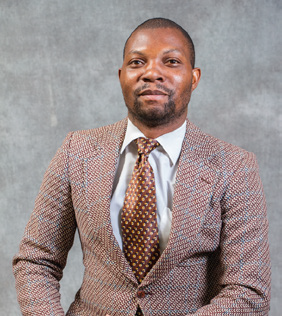Circular Economy buzzword has become synonymous with many African countries as nations find ways to deal with burgeoning environmental crises. Traditional models of development favoured take-make-dispose models. These models resulted in overexploitation of environmental resources. Wearing clothes once, single-use plastics and other key one-hit wonders are largely blamed for the global environmental crises which exist in different parts of the world. In Africa the transition towards a Circular Economy (CE) is facing both opportunities and challenges.
Opportunities exist in wastewater recycling, plastic recycling and waste beneficiation. Attaining a high level of sustainability requires sustainable economic development models anchored on the circular economy. Some countries which are moving towards circularity include South Africa, which is implementing industrial symbiosis. Industrial symbiosis is where waste from an organisation becomes a raw material to another organisation. This is a paradigm shift from the conventional way of doing things. Through industrial symbiosis, companies can save costs and achieve sustainable development.
In the area related to fertiliser production, waste materials can be used as raw materials in the manufacturing of wall finishing plasters. In a Circular Economy there is nothing which is considered as waste and this allows for a wide collaboration between stakeholders.
In Africa the main challenge is how to finance circular economy activities as well as how to strike a balance between environmental protection and economic development. Some communities view a circular economy as a foreign concept which needs to be domesticated. There is no agreement as to when the circular economy will commence, therefore countries are adopting it at their own pace.
The million-dollar question has also been around how to finance a circular economy. Financing a circular economy is necessary and can occur through loans, guarantees, grants and equity. The question is whether ordinary people and small to medium sized enterprises can access the financing.
Circular Economy will require Africa to abandon its ways of doing things including unsustainable practices. Some sectors of the economy believe that a circular economy could be a hindrance to the growth of Africa whilst other scholars believe that Africa should not repeat the mistakes of developed countries.
In order to ensure that the future generations enjoy the same environmental resources as we are doing today, a Circular Economy is an imperative. Let’s all strive to build one through our daily activities.
Author
-

Tawanda Collins Muzamwese is the Editor in Chief of the Green Business Gazette Magazine. He is is an international consultant in sustainable business development with massive experience in training, consulting and auditing. He has facilitated capacity development in more than 100 enterprises drawn from over 30 countries. He is the founder of the sustainability think-tank called Toxiconsol Consultancy t/a African Sustainability Consultants. He is the Editor in Chief of the Green Business Gazette Magazine. He is a consultant and business coach with over 13 years experience. Tawanda is a Management Systems Consultant working on promoting development and implementation of ISO Standards (ISO 14001:2015, ISO 9001:2015 and ISO 45001:2018) in both developed and developing countries. With his inspirational and pragmatic writing style he has written cutting edge books including: 1) How to grow a Side-hustle into a viable business - Overcome Salary Dependency 2) The Leading Consultant: How become an authority in your professional field 3) Step-by-Step Guide to implementing Safety, Health, Environment and Quality Management Systems 4) Stepping on Higher Perspectives: Greatness Tips Motivational Series 5) Sustainability Guidebook for Boards and CEOs: Leading from the front Tawanda writes about sustainability, motivation, safety, health, environment and quality management. His books are relevant to both developed and developing countries. With practical approaches and case studies, he provides incisive insights into entrepreneurship. His philosophy is based on the premise that every human being has potential to make a significant difference in their lifetime. He writes books on taking personal responsibility for progression in life. He motivates entrepreneurs to implement income generating projects and determine their own financial destiny. He also motivates companies to take up sustainability initiatives. A start-up coach, public speaker, environmentalist, safety, health and quality management expert, Muzamwese bridges the gap between theory and practice through building capacity and sharing practical case studies in his books.
View all posts



